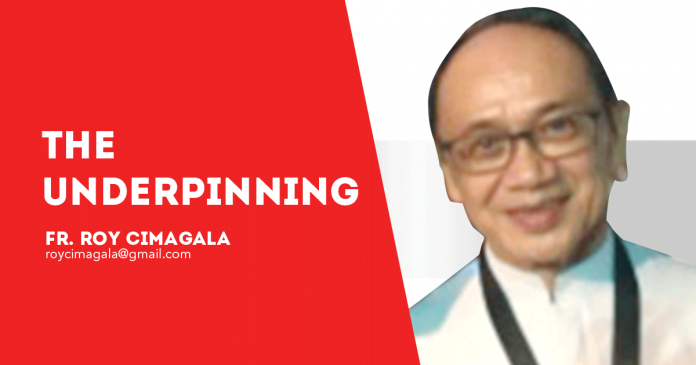
THAT’S how love should be if it is true. That is to say, if it is the love that flows from the same love which is the very essence of God and that is also meant for us, since we are God’s image and likeness.
We are reminded of this truth of our faith in that gospel episode where Christ was asked what God’s greatest commandment is. That is to say, what God really wants us to do and ultimately to be. (cfr. Lk 10, 25-37)
That’s when Christ clearly said that the greatest commandment is to “love the Lord, your God, with all your heart, with all your being, with all your strength, and with all your mind, and your neighbor as yourself.”
The response of Christ clearly indicates that we ought to give everything to God out of love. In other words, it’s an all-or-nothing thing, an incredible ideal to attain but for which we actually have been given all the means.
We just have to do our part which, of course, will take some time and some process. The important thing is that we should try to put our mind and heart into this responsibility, and no matter how things go, we should just move on. God is always understanding and patient with us, “quick to forgive, slow to anger.”
We need to realize that true love has a universal scope. It is all inclusive. We are meant to love our neighbor, who is actually anyone and everyone, including those we do not know, and those who are strangers and are even our enemies.
Let’s remember also that our love for God is expressed and is proven by our love for the others. St. John in his first Letter said as much, “He who does not love his brother whom he has seen, cannot love God whom he has not seen.” (4, 20)
In this regard, we have to see to it that we are always thinking of the others, and of how we can serve them in any way. This will prove our love for God, since love is deeds and not just sweet words.
Obviously, to pursue this ideal will always be a work in progress, requiring a lot of patience and prudence. Before anything else, it will require that we be more and more Christ-like because only then can we really have this inclusivity of charity. Let’s hope that we be game with that.
The inclusivity of charity for sure is not an anything-goes matter. The truth cannot be compromised, but we have to understand the truth not as a fixed, frozen thing that can be fully captured by our articulated doctrines, laws and principles. The truth is a living thing, as living as God himself who is precisely the absolute truth. As such, it is dynamic and wrapped many times in mysteries and spiritual and supernatural realities.
It’s not that our doctrines, laws and principles serve for nothing. They are necessary, but as a guide to the truth, and not as truth itself. They will always need to be read, understood and followed with the proper spirit that can only come from God. They need to be continually updated, deepened, polished.
It is with these parameters that we have to approach issues like whether we should be dealing with people who are non-believers, public sinners, those in what we call are in irregular situations, and even those who are in open enmity with the Christian faith./PN



